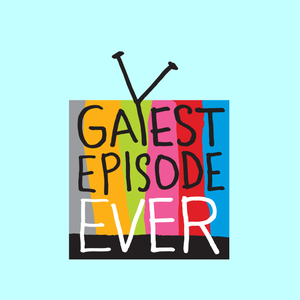
Gayest Episode Ever
Drew Mackie & Glen Lakin / TableCakes Productions
A look at LGBT-focused episodes of classic sitcoms
- 1 hour 53 minutesSailor Moon Meets a Beguiling Genderfluid Villain
We are keeping our tradition of making our first post of the new year about Sailor Moon. That ep, about the debatably trans Sailor Starlights, is now live on Patreon — at $1 for subscribers but it can also be purchased for $3 for non-subscribers. But we're putting last year's Sailor Moon ep, about the villain Fisheye, on the main feed.
Important note: Due to recent political events, we’re giving all of our Patreon proceeds for this month to the Transgender Law Center.
“Shadow of Evil: The Trio's Last Chance” (September 23, 1995)
It’s a new year, and you’re getting a new Sailor Moon. This time, we are focusing on Fisheye, a henchman villain from the fourth season who defies categorization both in terms of his gender performance and his status as a bad guy. This one is all over the place in the best possible way, and might be the closest to a true anti-Sailor Moon the series ever gets. Seriously, we love this goofy weirdo and who he gets more of an arc than anyone else does this season.
We gave Fisheye the Leon Carp treatment, and this episode also examines the following other episodes: Meeting of Destiny: The Night Pegasus Dances (s4e1), Forest of Illusion: A Beautiful Fairy’s Invitation (s4e10), We Love Fashion: The Stylish Guardians (s4e13), Become a Prima: Usagi’s Ballet (s4e18) and Mirrors of Dreams: The Amazon's Last Stage (s4e22).
Also listen to our previous Sailor Moon episodes: The Cartoons That Made Us Gay: Sailor Moon and Sailor Moon Meets a Lesbian Couple.
22 January 2025, 3:09 am - 2 hours 21 minutesThe Grand Unified Theory of Why Frasier Seems Gay
“The Matchmaker” (October 4, 1994)
Whelp, it’s our 250th episode (sort of), and we’re celebrating by going back and reexamining our first-ever episode and, really, the reason this podcast exists in the first place: “The Matchmaker” from Frasier’s second season, which the show used to tell viewers definitively that no, despite all appearances otherwise, Frasier Crane is not gay. We’re joined again by Anthony Oliveira, who also helps us recount Frasier’s entire history of seeming kinda gay, from being metaphorically born from Diane Chambers all the way until the reboot.
Buy Anthony’s new book, Dayspring.
Read the New York Times article Drew mentions, “The Boys in the Writers’ Room.”
Read GEE's write-up in Emmy magazine, which is basically the same thing as actually winning an Emmy.
24 December 2024, 9:09 pm - 2 hours 6 minutesIt’s All Relative Was ABC’s Attempt at a Will & Grace
“Pilot” (October 1, 2003)
Even NBC tried to replicate the success of America’s first popular gay sitcom, and this week we’re joined once again by Steven Capsuto to discuss an attempt to bring same-sex parents to prime time. It’s All Relative only lasted a season, but that’s actually longer than most LGBTQ-inclusive sitcoms that followed in Will & Grace’s wake, and for what it’s worth, its pilot shows a lot of promise.
Read GEE's write-up in Emmy magazine, which is basically the same thing as actually winning an Emmy.
Buy the revised edition of Steven’s book, Alternate Channels: Queer Images on 20th-Century TV.
Listen to Steven’s previous episode, about Tony Randall’s Love, Sidney.
Drew is pulling quotes from the following articles:
18 December 2024, 6:11 am - 1 hour 31 minutesBob’s Burgers Gives Marshmallow a New Voice
“Hope ’n’ Mic Night” (November 10, 2024)
Long-running animated sitcoms face a unique challenge in having to account for an episode that aired more than a decade previously, and this recent Bob’s Burgers proves that this can be accomplished thoughtfully and deliberately. “Hope ’n’ Mic Night” repeatedly references the season one episode “Sheesh! Cab, Bob?” which introduced Marshmallow to the show but also did a few things that cast trans characters in a less than flattering light. Fifteen years later, the show gives Marshmallow 2.0 the spotlight she’s deserved for while, and frankly it’s heartening to see a show make all the right moves.
Watch the homemade Archer/Bob’s Burgers crossover that got Simon Chong, the director of this episode, a real Hollywood job.
What the video for Paula Abdul’s “Opposites Attract.”
Read the Deadline interview with Jari Jones, the new voice of Marshmallow.
11 December 2024, 6:06 am - 1 hour 20 minutesIt’s a Will & Grace Thanksgiving!
“Homo for the Holidays” (November 25, 1999)
What? An episode of Will & Grace that Drew actually likes? Kind of! This season two episode has Jack coming out to his mother over Thanksgiving dinner, and it’s basically the gayest Thanksgiving episode of any sitcom ever. And it’s a good piece of TV with some thoughtful dialogue, even if a lot of the jokes are very representative of that Will & Grace style, which you either like or you don’t. Also: Is Jack McFarland responsible for popularizing the phrase “platinum gay”?
Listen to previous Will & Grace episodes here.
27 November 2024, 5:54 am - 1 hour 32 minutesKing of the Hill Accidentally Explores Muscle Gainer Subculture
“Bill, Bulk and the Body Buddies” (May 20, 2007)
Can one illustration of a buff Bill Dauterive change your entire life in an instant? Well, for some people, yeah. This King of the Hill outing manages to stuff in a whole lot of imagery that will be familiar to a certain gay subculture. It’s inadvertent — and specifically this episode also features explicitly gay characters as a counterpoint to the rude, crude muscle bros, but there’s plenty to talk about nonetheless in Bill’s adventures through body transformation.
Listen to our previous King of the Hill episodes here.
20 November 2024, 4:59 am - 1 hour 19 minutesThat Girl Meets the Cross-Dressing Cops
"A Muggy Day in Central Park" (November 14, 1968)
A contemporary of Bewitched, That Girl aimed for a more sophisticated audience than most sitcoms of its era. Not only does it look more cinematic, in a way that sitcoms generally wouldn't until the 2000s, but it's also more clearly a feminist show, where Marlo Thomas plays a woman braving big city life on her own. This episode does that tired thing where gay men, cross-dressers, trans woman and drag queens are conflated down to a single thing, but it’s nonetheless interesting to see how a progressive show handles queer things fairly explicitly in the 1960s.
Listen to the Monday Afternoon Movie episode about the Ted Bessell thriller Scream, Pretty Peggy.
13 November 2024, 5:35 am - 2 hours 13 minutesBoy Meets World Does a Scream Parody
“And Then There Was Shawn” (February 27, 1998)
Somehow, Boy Meets World got ABC to say yes to a parody of Scream within the confines of the TGIF lineup. That’s wild enough, but it’s even more surprising what this “it was all a dream” episode lifts directly from the 1996 slasher. Joining us to discuss this unlikely intersection of franchises are the hosts of the Guide to the Unknown podcast, Kristen Anderson and her little brother, Will Rogers (not the gay beach). Happy Halloween!
Listen to Guide to the Unknown groundbreaking analysis of the Scary Movie franchise, SCARMUTO.
Listen to William’s narrative horror podcast Blackwood.
And if you want to read more about the Scream 3/Harvey Weinstein connection, read this Slate article.
Watch the new season of Glen's show, Ninjago: Dragons Unleashed!
Listen to Drew discussing 16-bit horror video games on Retronauts.
Episodes what we mentioned:
-
Gayest Episode Ever, “Boy Meets World Accidentally Does a Trans Episode”
-
Gayest Episode Ever, “Two Guys, a Girl and a Post-Scream Slasher Halloween”
-
Gayest Episode Ever, “The Facts of Life Goes to the Twilight Zone”
-
Weirdest Episode Ever, “Family Matters Fights and Evil Murderous Puppet”
-
Monday Afternoon Movie, “Summer of Fear with John Arthur Hill”
30 October 2024, 2:35 am - 1 hour 37 minutesBewitched Unleashes the Gay Scourge That Is Uncle Arthur
“The Joker Is a Card” (October 14, 1965)
Nearly two hundred episodes later, we’re finally returning to Bewitched to give Uncle Arthur a proper introduction. And while he’s a big part of Bewitched’s gay fandom, Paul Lynde brings a lot of baggage to the role that taught Americans to laugh at eccentric gay weirdos everywhere.
Watch the new season of Glen's show, Ninjago: Dragons Unleashed!
Listen to Drew discussing 16-bit horror video games on Retronauts.
This episode featured a lot of references to previous episodes, so here are all of those, for your listening pleasure:
-
The previous GEE about Bewitched (but honestly this new episode is better)
-
Our episode about The Addams Family, which deals with similar themes of ethnicity/culture erasure
-
The GEE/Monday Afternoon Movie crossover episode about the Paul Lynde Halloween Special
-
The Monday Afternoon Movie episode about The Legend of Lizzie Borden, which starred Elizabeth Montgomery and Katherine Helmond
-
And finally the Monday Afternoon Movie episode about the Star Wars Holiday Special, with special guest Bruce Villance
Finally, the Hollywood Squares zingers all come from this YouTube compilation.
23 October 2024, 6:07 am -
- 1 hour 36 minutesKarl Is the Simpsons' First Gay Friend
“Simpson and Delilah” (October 18, 1990)
Not only the earliest gay-themed Simpsons episode we’ve ever done, this one is also the first gay-themed episode The Simpsons ever did. And while the enigmatic Karl doesn’t get to be explicitly gay, we argue whether having a gay-coded character might have been the show’s way to — in its second season and at the height of Simpsons mania — signal to grown-ups that no, despite the t-shirts, this was not a show for kids and it could operate at a higher level. But how many adults watching TV in 1990 knew who Harvey Fierstein was?
Remember when I did a supercut of all the LGBTQ jokes on The Simpsons? It still lives, even if you have to go to YouTube to watch it now for stupid homophobic reasons. It has 3.7 million views so far! I just think that's neat!
Also listen to the most recent Talking Simpsons take on this episode here.
16 October 2024, 5:00 am - 2 hours 14 minutesA Different World Meets a Possible Lesbian
“Wild Child” (February 4, 1988)
Officially, A Different World never did a gay episode and there were no queer students at Hillman. Nestled in the middle of the Bonet/Tomei season, however, is an interesting episode about a girl named Cougar, who happens to be easily read as a lesbian and interact in interesting ways with both Denise and Whitley. Entertainment journalist Stacey Yvonne joins us to discuss this episode and why A Different World still matters in 2024.
You can watch this episode of A Different World on our Vimeo.
Listen to Stacey's appearances on Sam Pancake Presents the Monday Afternoon Movie discussing the made-for-TV horror films The Possessed and The Strange and Deadly Occurrence.
9 October 2024, 6:34 am - More Episodes? Get the App
Your feedback is valuable to us. Should you encounter any bugs, glitches, lack of functionality or other problems, please email us on [email protected] or join Moon.FM Telegram Group where you can talk directly to the dev team who are happy to answer any queries.
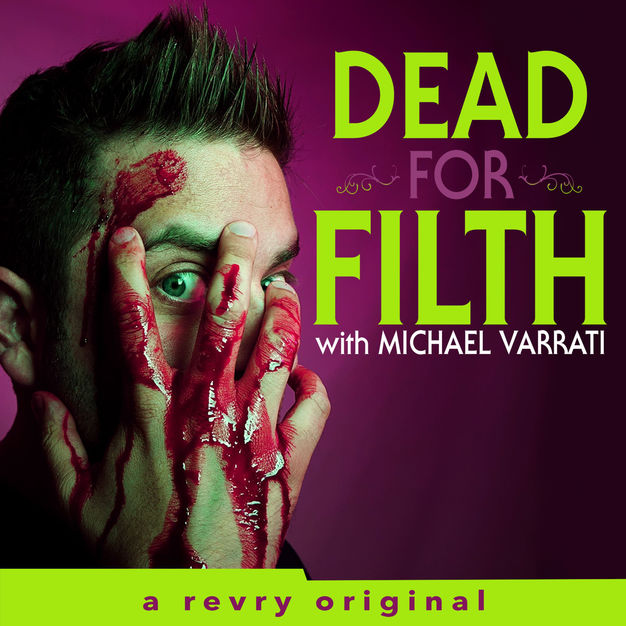 Dead for Filth with Michael Varrati
Dead for Filth with Michael Varrati
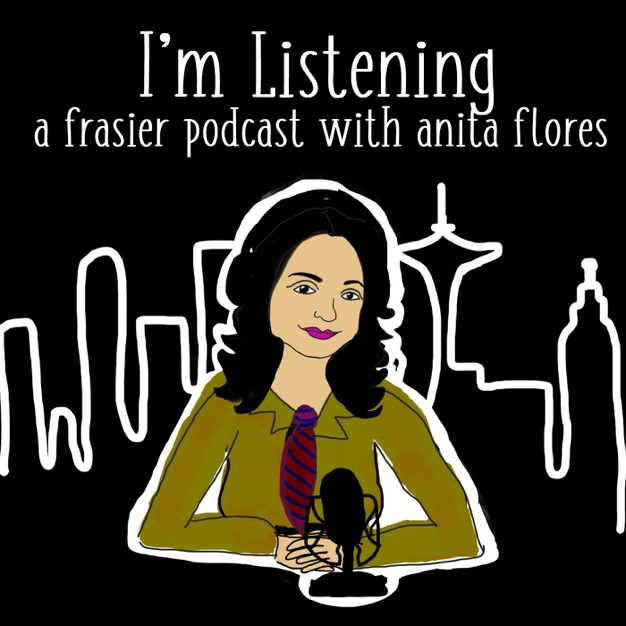 I'm Listening : A Frasier Podcast with Anita Flores
I'm Listening : A Frasier Podcast with Anita Flores
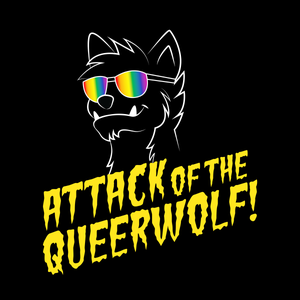 Attack of the Queerwolf
Attack of the Queerwolf
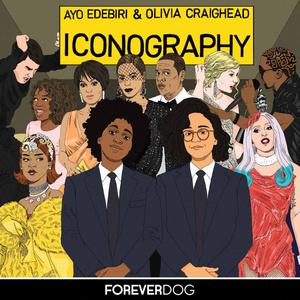 Iconography with Ayo Edebiri and Olivia Craighead
Iconography with Ayo Edebiri and Olivia Craighead
 Waiting to X-hale
Waiting to X-hale
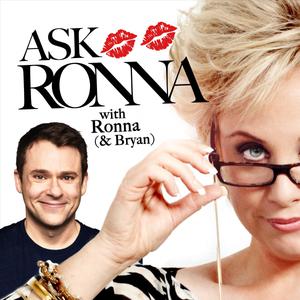 Ask Ronna
Ask Ronna